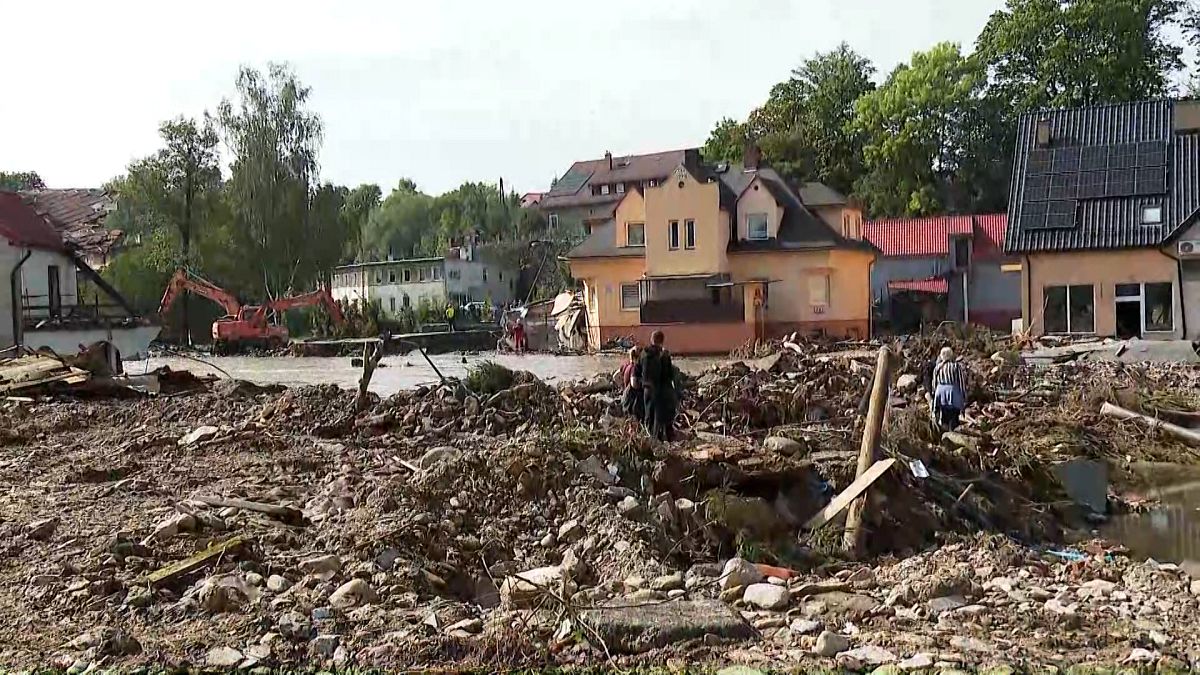The recent flooding in the town has caused extensive damage, with streets completely submerged and residents left without basic necessities such as electricity, water, and internet access. Initial estimates suggest that the damage could cost up to 1 billion zlotys (€234m), highlighting the scale of the disaster. The impact on the community is significant, with concerns growing about the long-term recovery process and how residents will cope with the aftermath of the flooding.
As the town grapples with the aftermath of the flooding, residents are facing challenges in accessing essential services and resources. The lack of electricity, water, and internet access has disrupted normal life for many, making it difficult for people to communicate and stay informed about the situation. This has added to the already stressful circumstances caused by the flooding, further highlighting the urgent need for support and assistance from authorities and organizations.
The flooding has not only caused physical damage to infrastructure and properties but has also taken a toll on the mental and emotional well-being of residents. The trauma and stress of dealing with the aftermath of the disaster can have long-lasting effects on individuals and communities, further complicating the recovery process. It is crucial for mental health services and support systems to be in place to help residents cope with the psychological impact of the flooding and rebuild their lives.
In addition to the immediate concerns of basic needs and mental health support, there are also broader questions about the long-term recovery and rebuilding of the town. The extent of the damage is immense, and it will take time and resources to repair and restore the affected areas. There is a need for coordinated efforts from government agencies, non-profit organizations, and the community to work together to rebuild infrastructure, support businesses, and ensure that residents can return to a sense of normalcy.
The flooding in the town serves as a stark reminder of the increasing frequency and severity of natural disasters, which are often exacerbated by climate change. As extreme weather events become more common, communities must be better prepared to respond and recover from disasters like floods. This includes investing in infrastructure to mitigate flooding, developing early warning systems, and creating emergency response plans to protect lives and property in the event of a disaster.
In the face of adversity, communities often come together to support each other and rebuild stronger than before. The flooding in the town has brought residents closer as they work together to overcome the challenges and rebuild their lives. Through solidarity, resilience, and collaboration, the community can emerge from this disaster stronger and more prepared for future challenges. As the recovery process continues, it is essential for all stakeholders to remain committed to supporting the town and its residents in their journey towards recovery and rebuilding.









